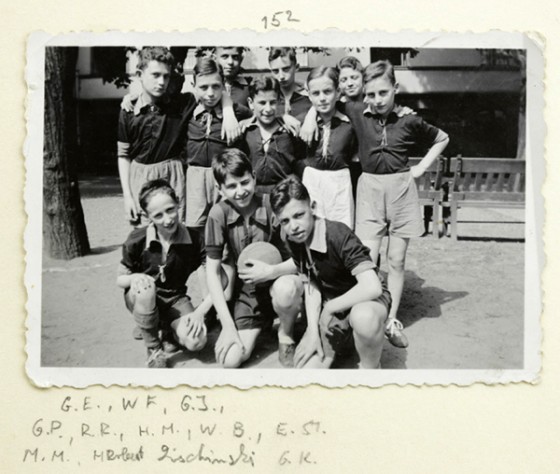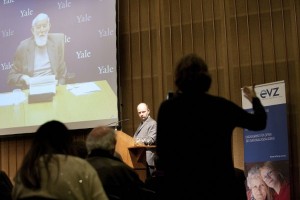This evening a game between the Israeli and Norwegian teams will kick off the Under-21 European Football Championship in Netanya. Participating in the opening match in their home country will be something very special for the Israeli players.
Since I am a big soccer fan, this European Cup provided me with the impetus to take a closer look at what the Jewish Museum’s collection has on the subject of soccer. In our online display I discover a “Short History of Jewish Football,” and in our collection data bank I find further objects that awaken my curiosity. A photograph from the year 1936 or 1937 particularly appeals to me. I find it fascinating that soccer was already in the 1930s something boys loved to play. In the picture stands (last row, center) the young Walter Frankenstein, born in 1924, together with his soccer team:

The soccer team of Auerbach’s Orphanage from 1936 or 1937. Gift of Walter Frankenstein (last row, center). Photographer unknown.
© Jewish Museum Berlin, photo: Jens Ziehe
All the boys in the picture were inhabitants at that time of Auerbach’s Orphanage in Berlin’s Schönhauser Allee. → continue reading
